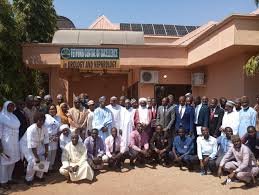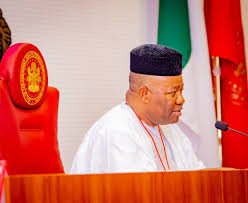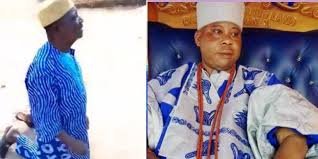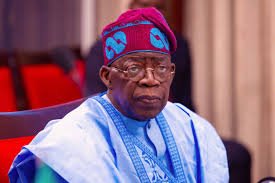The Labour Party Lagos state Governorship candidate, Gbadebo Rhodes-Vivour, has in strong terms berated the move by the State House of Assembly to make laws that would protect the property right of the indigenous populations.
Speaker of the Assembly, Mudashiru Obasa had made this known in his acceptance speech after his re-election as the leader of the house.
Obasa said lawmakers would go to any length in protecting the state indigenes even if it meant reversing existing law, adding that laws passed by the assembly would be translated into the Yoruba language.
“Lagos is a Yoruba land as against the assertions of some people that it is a no man’s land.
“Therefore, part of our legislative agenda is to ensure the translation of laws passed by this House to the Yoruba Language. We also aim at achieving our collective goals of creating a robust legislative framework that protects the interest of our people
Going forward in this wise, we are going to employ all legislative instruments for the support of the indigenes of Lagos. There would be laws and resolutions in the areas of economy and commerce, property and titles,” Obasa said
The Explainer gathered that Obasa’s comment is coming in the wake of the recent controversy on who the real owners of the Lagos state are.
Recall that in the build-up to the February and March elections in Lagos, there were divisive statements made on and off social concerning Lagos politics.
But reacting via his social media handle on Thursday, Gbadebo said any move to divest so called non-indigenous people of Lagos State from their properties or discriminate against them, would backfire.
Cautioning the Speaker against any move to divide Lagos residents along ethnic lines, GRV, who used his Twitter handle, to make his position known, he warned that any such law, which would seek to reverse property rights in favour of the indigenous people of the state at the expense of other residents was divisive and not in its economic interest of Lagos, describing such a move as an attempt to undermine the fundamental right of residents as enshrined in the country’s constitution.
He charged the well-meaning Lagosians to resist “the divisive bill,” arguing that in considering such legislation, the Speaker has disregarded the Nigerian constitution, pointing out that the law would discourage the participation of local and international investors in Lagos’ economy.
“By considering this regressive bill, the Speaker disregards the spirit of the Nigerian Constitution and perpetuates a discriminatory system that divides our society along ethnic lines. The proposed bill undermines the principle of private ownership and could severely affect investment, economic growth, and overall prosperity in Lagos State.
“By considering such legislation, the Speaker is sending a damaging message to local and international investors, discouraging their participation and confidence in the state’s economy.”
He stated that instead of promulgating such a law, the lawmakers should rather make that would “protect heritage, historical sites, and traditional institutions from political vandalism, adding that the state government must stick to its duty of catering to the welfare of its citizens irrespective of the state of origin.






















